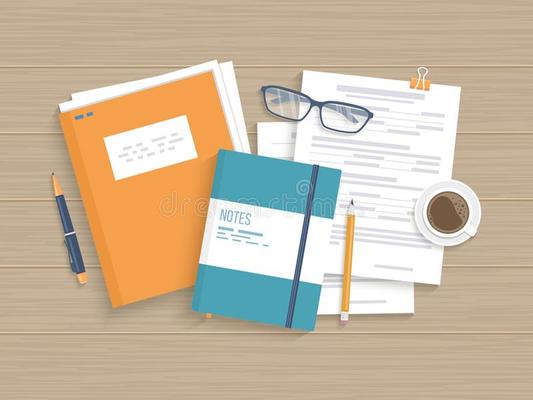
A giant information shop gently being constructed can free huge swathes of mathematics for computer evaluation -- but is it legal?
In front of the information store of 73 million posts he intends to allow scientists.
It is on a crusade to liberate data locked up behind paywalls -- along with his attempts have scored many successes.
He's spent years publishing copyrighted legal records, from building codes to court documents, and then asserting that such texts signify public-domain law which should be accessible to any taxpayer online. From time to time, he's won these discussions in court. And he believes he's a valid means to do it.
Over the last year, Malamud has without requesting publishers -- awakened with Indian investigators to construct a gigantic store of text and graphics pulled from 73 million magazine articles dating from 1847 around the present moment. It is comparable to the magnitude of this core set in the Web of Science, as an example. Malamud along with his JNU collaborator, bioinformatician Andrew Lynn, telephone their center the JNU information depot.
Nobody is going to be permitted to download or read work in the repository, as that will breach publishers' copyright. Rather, Malamud envisages, scientists could creep more than its data and text with computer applications, scanning the entire world's scientific literature to extract insights without really reading the text.
The unprecedented job is creating much enthusiasm since it might, for the first time, start-up vast swathes of this paywalled literature for simple computerized analysis. Dozens of study teams mine newspapers to construct databases of enzymes and compounds, map institutions between diseases and proteins, and create useful scientific hypotheses. But publishers command -- and frequently limit -- the pace and range of these projects, which generally restrict themselves into abstracts, not full text. Researchers in India, the USA, and the United Kingdom have already been making plans to utilize the JNU shop instead.
However, the depot's legal standing is not yet very clear. Malamud, who contacted a few intellectual-property (IP) attorneys before beginning work on the depot, expects to prevent a lawsuit. For now, he's moving with care: the JNU information depot is air-gapped, meaning no one can get it from the net. Users must physically go to the center, and just investigators who wish to mine for non-technical functions are allowed in. Malamud says that his staff does plan to permit remote access later on. We aren't throwing this open immediately," he states.
The JNU data store may sweep further barriers that nevertheless dissuade scientists from utilizing applications to simplify the study, '', a bioinformatics researcher at the University of California, Santa Cruz (UCSC). "Text mining of academic documents is near impossible at the moment," he says -- for somebody like him, that has institutional accessibility to paywalled posts.
Since 2009, his colleagues have been building the internet UCSC Genome Browser, which joins DNA sequences from the human genome into elements of study papers that cite the very same sequences. To do that, the investigators have contacted over 40 publishers to request permission to utilize applications to gun through search to find mentions of DNA. However, 15 publishers haven't responded or have refused consent. It is uncertain whether he can lawfully my documents without consent, so he is not trying. Before, he's discovered his accessibility blocked by publishers that have seen his applications crawling over their websites. "I spend 90 percent of my time calling publishers or composing applications to download newspapers,".
A statistician who operates part-time in Berlin's QUEST Center for Transforming Biomedical Research, says that he restricts himself to text-mining function from open-access publishers just, since"the hassles of dealing with those shut publishers are too much". Several decades back, when Hartgerink had been pursuing his Ph.D. from the Netherlands, three publishers obstructed his entry into their journals once he attempted to download posts in bulk for mining.
Some states have changed their legislation to confirm that researchers on noninvasive jobs do not require a copyright holder's consent to mine anything they can lawfully access. That will not help teenagers in poor states who do not have accessibility to newspapers. And even in the UK, publishers can lawfully set'reasonable' limitations on the procedure, like channeling scientists via publisher-specific interfaces and restricting the rate of digital hunting or bulk downloading to protect servers from overload. It might take a year to get around six million posts, and five years to get all printed articles about only biomedicine," he states.
Wealthy pharmaceutical companies often pay additional to negotiate particular text-mining accessibility because their job has a commercial goal, ''. Sometimes, publishers enable these companies to download newspapers in bulk, thus preventing rate limitations, according to a researcher in a pharmaceutical company who didn't need to be recognized because they weren't authorized to speak to the media. University professors, nevertheless, often restrict themselves to mining post abstracts from databases like PubMed. That provides some advice, but complete texts are way more useful. In 2018, a group headed by computational biologist Søren Brunak in the Technical University of Denmark in Lyngby revealed that full-text investigations throw up a lot more gene--disorder links than do investigations of abstracts.
Scientists should also overcome technical obstacles when mining posts. It's tricky to extract text in a variety of designs that publishers use -- something which the JNU group is struggling with at this time. Tools to convert PDFs to the text do not always differentiate clearly between paragraphs, footnotes, and graphics, for example. When the JNU group has completed it, nevertheless, others will likely be spared the effort. The group is close to finishing the first form of extraction in the corpus of 73 million newspapers, he states -- even though they will have to check for mistakes, so he anticipates that the database will not be prepared before the end of the year.
A universe of possibilities
In 2006, he directed an attempt at NIPGR to construct a record of compounds secreted by plants. Called EssOilDB, this weapon is now scoured by classes from medication developers to perfumeries searching for leads.
His group conducts a record of genes linked to type 2 diabetes; they have been crawling PubMed abstracts to locate papers. He expects that the depot could expand his mining web.
And in the Massachusetts Institute of Technology (MIT) in Cambridge, a group known as the Knowledge Futures Group states it needs to mine the depot to map the way that academic publishing has developed over time. The team hopes to predict emerging areas of study and identify options to traditional metrics for measuring research impact, '' says group member, a doctoral student at MIT Media Lab.

A profession unlocking copyright
Malamud just recently had the notion of expanding his activism to academic publishing. The creator of a non-profit company named Public Resource, located in Sebastopol, California, Malamud has focused on purchasing up government-owned legal functions and publishing them. These include, for example, the condition of Georgia's annotated legal code, European toy-safety criteria, and over 19,000 Indian criteria for everything from pesticides and buildings into surgical equipment.
Since these documents are frequently a source of revenue for government agencies, a number of them have sued Malamud, who's contended that records that have the power of this law cannot be secured behind copyright. A German court ruled in 2017 the book of toy criteria by Public Resource, such as a standard on infant dummies (pacifiers), was prohibited.
However, Malamud has enjoyed successes, also. In 2013, he filed a lawsuit in a US federal court requesting the Internal Revenue Service (IRS) to release the forms it gathered from tax-exempt non-profit organizations -- info that could help hold these associations to account.
In ancient 2017, aided by the Arcadia Fund, a London-based charity that encourages open access, Malamud switched his focus to research posts. Under US law, functions by US federal government employees can't be copyrighted, and Public Resource states it's found thousands and thousands of academic posts which are US government functions and appear to defy this principle. Malamud has predicted for such posts to be freed out of copyright assertions, but it is not clear if that could hold up in court. He's submitted his preliminary outcomes online but has set additional campaigning on hold since the job motivated him to carry on a broader assignment: democratizing access to all scientific literature.
Opportunity in India
A trigger for this particular assignment came out of a milestone High Court ruling in 2016. For many years, the company was coordinating course packs for pupils by photocopying pages from expensive textbooks.
In its ruling, the court mentioned section 52 of India's 1957 Copyright Act, allowing the reproduction of copyrighted works for schooling. Another provision in the same section enables reproduction for study purposes.
And around precisely the same time he learned concerning the conclusion, he'd come into possession (he will not say how) of eight hard drives comprising countless journal articles from Sci-Hub, the pirate site which distributes paywalled newspapers for anybody to read. Sci-Hub itself has just lost two suits against publishers in US courts on its copyright infringements, but despite these conclusions, a number of its domain names are still working now.
Malamud started to wonder if he could lawfully utilize the Sci-Hub forces to gain Indian pupils. At a 2018 publication about his job known as Code Swaraj, co-authored with an Indian technology entrepreneur, he writes that he envisioned showing on Indian campuses at the equal of an American taco truck, ready to serve up the articles to people who desired them.
(Malamud has also helped to install another mining center with 250 terabytes of information in the Indian Institute of Technology Delhi, which is not in use yet.) However, he's cagey about where the depot's posts come from. Asked directly whether a number of those text-mining depot's posts come in Sci-Hub, he stated he would not comment, also termed only resources that offer free-to-download versions of newspapers (like PubMed Central and the the'Unpaywall' instrument ). However, he does state that he doesn't have contracts with publishers to get the journals at the depot.
He states where he obtained the posts from should not matter anyhow. The information mining, he states, is non-consumptive: a technical term meaning that investigators do not read or exhibit huge portions of the functions they're analyzing. He asserts it is legally permissible to perform such an exploration of copyrighted material in countries like the United States. In 2015, for example, that a US court defeated Google Books of copyright breach fees afterward it did something much like this JNU depot: Reading tens of tens of thousands of books without purchasing the rights to do so, and showing snippets from such novels as part of its investigation support, but not letting them be read or downloaded in their entirety with an individual.
The Google Books instance was an evaluation of non-consumptive information mining,''. An IP attorney in the law firm at San Francisco, California, who symbolized Google from the situation and has formerly represented Public Resource. Google was studying authorized copies of novels (from libraries in several cases), though it didn't ask permission. Copyright holders could assert that if Sci-Hub or other unauthorized resources provided the JNU depot, the scenario could differ from the Google Books instance. However, a situation involving unauthorized sources hasn't contended in Western courts, which makes it tough to predict the results. "There are good reasons why the source should not issue, but there might be disagreements that it needs to,".
The issue of the center's legality in the USA may not be applicable, because global researchers would be receiving results from a depot that sits in India, even if they're getting it remotely. Thus Indian law is very likely to use to the question of whether it's legal to produce the corpus, states, a professor at the American University's Washington College of Law at Washington DC.
Risky business
When Character contacted 15 publishers concerning the JNU information depot, the six that responded stated that this was the very first time they'd heard of this job, and they could not comment on its legality without additional info. (Springer Nature publishes this diary; Character's newsgroup is editorially independent of its publication.)
Here, India's copyright legislation might assist Malamud -- yet another reason why the center is in New Delhi. Not everybody agrees with this interpretation, nevertheless. Section 52 lets researchers photocopy a journal article for private usage but does not necessarily enable the blanket replica of journals since the JNU depot has performed.
He admits that there's some danger in what he's doing. However, he asserts that it's"morally crucial" to perform it, particularly in India. Indian universities and government labs invest heavily in magazine subscriptions, he states, and don't have the books they require. Data published by Sci-Hub imply that Indians are one of the world's most significant users of the site, indicating that college licenses do not go much. Even though open-access moves in Europe and the USA are invaluable, India should direct the way in gaining access to scientific understanding, Malamud states.
